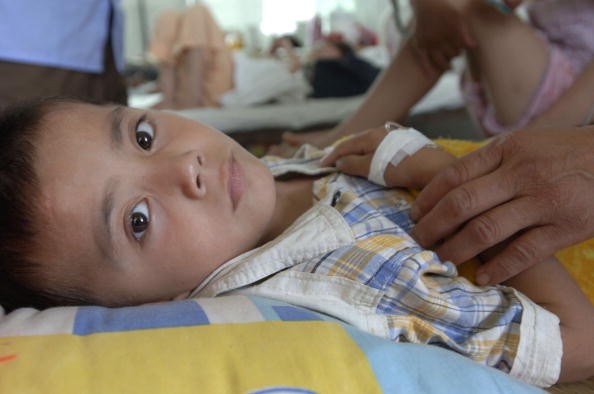Chinese police have arrested more than 130 people for suspected involvement in a growing vaccine scandal that has made headlines in China in recent days and raised questions over vaccine safety in the country.
69 criminal cases have been filed nationwide following the discovery of improperly stored or expired vaccines that had allegedly been sold in more than 20 regions since 2011, the Ministry of Public Security (MPS) said on Thursday.
Hua Jingfeng, a senior official with the MPS, told the Xinhua News Agency that vaccines involved in the case were sold for 310 million yuan ($47.6 million), rather than 570 million yuan as previously reported.
Authorities have found that most of the vaccines have been used, with 20,000 doses seized and sealed by authorities, according to Hua.
Investigators are still tracing the flow of the vaccines, he added.
29 pharmaceutical companies have been linked to the sale of illegal vaccines, and 16 vaccination institutions are suspected of purchasing them, according to Xinhua.
In January, police in East China's Shandong Province have arrested a mother and daughter for selling improperly stored or expired vaccines. 37 additional suspects linked to the scandal were detained on Sunday.
China's Food and Drug Administration issued on Monday a circular ordering drug and health departments to trace the manufacturing source of their vaccines and remove any substandard products off the shelves as soon as possible. It also urged law enforcement agencies to identify and apprehend the suspects still at large, and to conduct a thorough investigation into the supply and sales chain of the tainted vaccines.
On Tuesday, the Supreme People's Procuratorate (SPP), China's top prosecuting body, announced that it will directly oversee the vaccine case and urged all prosecuting agencies at all levels "to spare no efforts" in their investigation.
Prosecutors are to work closely with local police and drug administration to uncover the manufacturing source, circulation channels, and buyers of the inferior products, according to Xinhua.



























